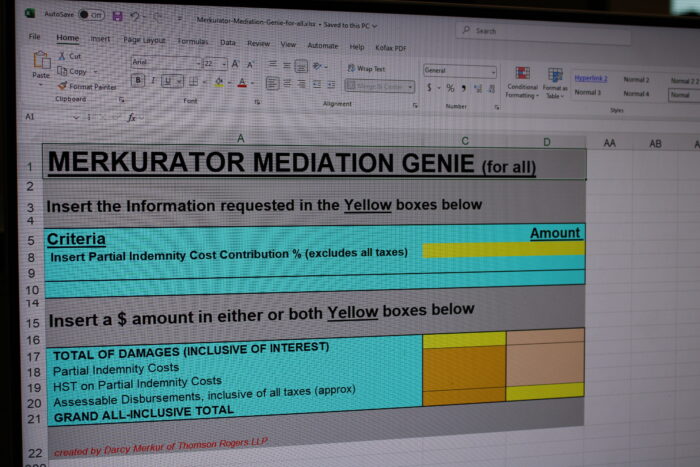Motorcycle accident: Can you sue if you were speeding?
August 7, 2025

Summer is peak season for motorcycles — and for accidents involving them. If you’ve been injured in a crash while speeding, you might assume you have no legal options. That’s not always true.
Here’s what you need to know:
What happens after a typical motor vehicle accident?
Ontario has a no-fault system of motor vehicle insurance. That means regardless of who’s at fault in an accident, all injured parties are eligible to receive statutory accident benefits for their reasonable and necessary medical, rehabilitation and attendant care needs, along with income replacement benefits if they are unable to return to work due to their injuries.
The first step in any motor vehicle accident (whether or not it involves a motorcycle) is filling out the Application for Accident Benefits (OCF-1) form, which will initiate the insurance claim.
In addition, you will also need to complete the Proof of Loss form to initiate your claim for property damage. The claims adjuster will investigate the accident. The adjuster will likely see pictures of the accident, talk to witnesses, and look at police reports.
The adjuster will compare your accident to a database of 40 accident types and determine fault for each driver (ranging between 0-100%). If you were speeding, the adjuster would likely allocate a greater portion of the fault to you unless the other driver was also driving improperly. This will determine your property damage coverage and if your premiums will be adjusted.
Even if you are found partially or fully at fault for the accident because you were speeding, your access to statutory accident benefits is normally not impacted unless you are convicted under the Criminal Code of Canada. If you are convicted of dangerous driving or stunt racing due to the high speed you were travelling at the time of the accident, you will not be entitled to the income replacement benefit or the housekeeping benefit if you are catastrophically impaired.
Why You Might Still Want to Sue After a Motorcycle Accident — Even If You’re Receiving Benefits
Ontario’s accident benefits system offers support to anyone injured in a crash, but those benefits don’t always go far enough — especially if your injuries are serious or long-term.
Here’s why many people still consider filing a personal injury lawsuit after a motor vehicle accident:
- Disputing fault: If your insurance company says you were more than 50% at fault, it can lead to higher premiums, limit your access to compensation, and even impact your future insurability.
- Low classification of your injuries: If your injuries are labeled as “minor” or “non-catastrophic,” your accident benefits may be capped at amounts that don’t reflect the real impact on your life.
- Pain and suffering: Accident benefits don’t account for the toll the injury has taken on your mental, emotional, and physical well-being. A lawsuit can.
- Loss of future opportunity: A crash might take away your ability to work, socialize, or live independently. Those future losses aren’t always covered by your insurance.
- Out-of-pocket expenses: From medical treatments and therapies to home modifications or lost income — many real-life costs aren’t reimbursed unless you pursue a legal claim.
- Support for your family: If loved ones have had to step in as caregivers, they may also have a right to compensation.
Can You Still Sue If You Were Speeding?
Yes — in most cases, you can still sue even if you were speeding at the time of the motorcycle accident.
Ontario law allows injured drivers, riders, passengers, cyclists, or pedestrians to sue another party involved in a collision, regardless of their own actions — unless your conduct was criminal (like impaired driving or stunt racing). That said, speeding can reduce the compensation you receive.
This is known as contributory negligence: if you’re found partially at fault, any damages awarded to you will be reduced by your percentage of fault.
So… Is It Worth Suing?
That depends on several factors — and you should talk it through with a lawyer who handles complex trauma cases. Things to consider:
- How severe are your injuries, and what is the potential value of your claim?
- How much fault has been assigned to you?
- Does the other party have insurance or assets that could pay out compensation?
- Is there enough evidence to support your case?
Talk to Someone Before You Decide
You don’t have to figure this out alone. The trauma lawyers at Thomson Rogers LLP offer free, no-obligation consultations to help you understand your rights, review your situation, and decide what’s next. We’ll walk you through your options, answer your questions, and connect you with the best treatment providers available.
Share this





